|
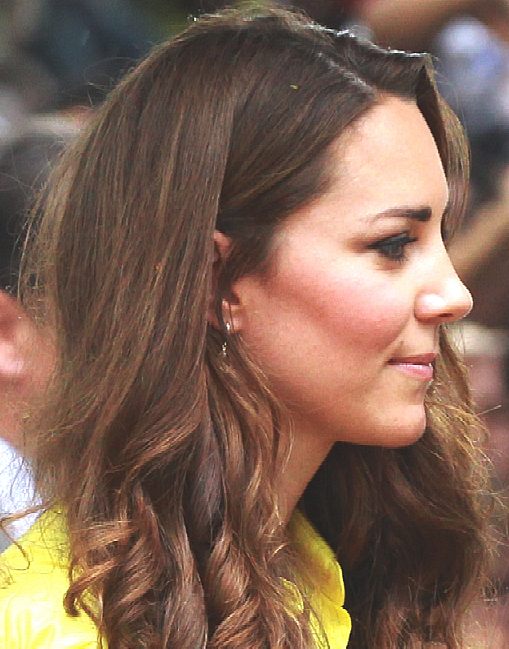
WILL
and KATE on PRIVACY APRIL 2013
PRINCE William and wife Kate will today make a criminal complaint over topless photos of the Duchess.
They will ask a Paris court judge to pursue the snapper responsible.
Both the photographer and the editor of France’s Closer magazine, which published the long-lens pics, could face jail.
A woman photographer has been placed under formal criminal investigation in connection with pictures taken of the Duchess of Cambridge as she sunbathed in France, it emerged tonight.
Legal sources in Paris said she is Valerie Suau, who admits taking images of Kate in the south of the country in September. She describes her pictures, published in France's La Provence regional newspaper, as 'all decent'.
But she is now facing a criminal trial along with a man believed to be Ernesto Mauri, the publisher of French Closer magazine, which first ran the pictures. Both are being prosecuted under strict privacy legislation.
The fuming Duke and Duchess are pressing for the “stiffest punishment possible” against the magazine.
The royal couple have instructed a barrister to demand tough action against Closer at the court hearing.
They will also lodge a criminal complaint against the unnamed photographer who they say breached their privacy by taking the long-range snaps.
While the court battle is set to start in Europe, Wills and Kate, both 30, enjoyed a flowery welcome on the Solomon Islands.
Will
and Kate topless snaps
ABOUT
THE SUN
The Sun is a daily national tabloid newspaper published in the United Kingdom and Ireland. Regionalised editions are published in Glasgow (The Scottish Sun) and Dublin (The Irish Sun). It is published by the News Group Newspapers division of News International, itself a wholly owned subsidiary of Rupert Murdoch's News Corporation.
The Sun has the ninth-largest circulation of any newspaper in the world and the largest circulation of any daily newspaper in the United Kingdom. It had an average daily circulation of 2,409,811 copies in January
2013. Between January and June 2012 the paper had an average daily readership of approximately 7.3 million, with approximately 34% of those falling into the ABC1 demographic and 64% in the C2DE demographic. The average age of a Sun reader is 45 and approximately 45% of readers are women.
The Sun has been involved in a number of controversies in its history, including its coverage of the 1989 Hillsborough football stadium disaster, false allegations against Elton John, and its attitude towards mental ill health, homosexuality and women.
On 26 February 2012, The Sun on Sunday was launched to replace the defunct News of the World, employing a number of its former journalists.
The Sun also has an iPad edition that costs £4.99 for a 30-day subscription and an app, priced at 69p.
NEWS OF THE WORLD SCANDAL
Following the News of the World phone hacking affair that led to the closure of that paper on 10 July 2011, there was speculation that News International would launch a Sunday edition of The Sun to replace the News of the World. The internet URLs:
www.sunonsunday.co.uk
www.thesunonsunday.co.uk
www.thesunonsunday.com
were registered on 5 July 2011 by News International Newspapers Limited. A similar URL sunonsunday.com is not affiliated, having been registered in Italy on 24 September 2007.
On 18 July 2011, the LulzSecurity group hacked The Sun's website, where they posted a fake news story of Rupert Murdoch's death before redirecting the website to their Twitter page. The group also targeted the website of The Times.
On 28 January 2012, police arrested four current and former staff members of The Sun, as part of a probe in which journalists paid police officers for information; a police officer was also arrested in the probe. The Sun staffers arrested were crime editor Mike Sullivan, head of news Chris Pharo, former deputy editor Fergus Shanahan, and former managing editor Graham Dudman, who since became a columnist and media writer. All five arrested were held on suspicion of corruption. Police also searched the offices of News International, the publishers of The Sun, as part of a continuing investigation into the News of the World scandal.
On 11 February 2012, five senior journalists at The Sun were arrested, including the deputy editor, as part of Operation Elveden (the investigation into payments to UK public servants).
Coinciding with a visit to The Sun newsroom on 17 February 2012, Murdoch announced via an email that the arrested journalists, who had been suspended, would return to work as nothing had been proved against them. He also told staff in the email that The Sun on Sunday would be launched "very shortly"; it was launched on 26 February 2012.
On 27 February 2012, the day after the debut of The Sun on Sunday, Deputy Assistant Commissioner Sue Akers told the Leveson Inquiry that police were investigating a "network of corrupt officials" as part of their inquiries into phone hacking and police corruption. She said evidence suggested a "culture of illegal payments" at The Sun authorised at a senior level.
SCOOPS
In 2006 The Sun published photographs of Prince Harry sporting a Nazi costume to a fancy dress party. The photographs caused outrage across the world and Clarence House was forced to issue a statement in response apologising for any offence or embarrassment caused.
In September 2012 The Sun's political editor Tom Newton-Dunn revealed that Andrew Mitchell called a Downing Street Policeman a "pleb". The Tory MP eventually admitted swearing at officers in the incident but denied calling The Police "plebs", but after a month of political pressure, Mitchell quit as chief whip and was replaced by Sir George Young. Mitchell maintains that he did not call the police "plebs" and is taking legal action.
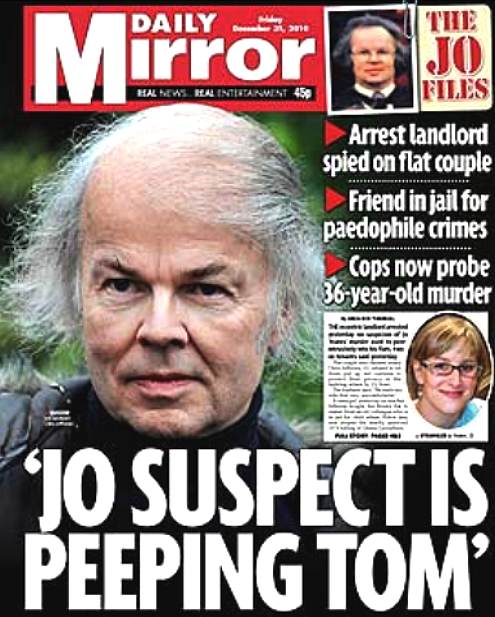
If
he'd been charged - he'd have been wrongly convicted. See the Amanda
Knox case.
JO
YEATES MURDER
Joanna
Clare "Jo" Yeates (19 April 1985 – 17 December 2010) was a
25-year-old landscape architect from Hampshire, England, who went missing
on 17 December 2010 in Bristol after an evening out with colleagues.
Following a highly publicised appeal for information on her whereabouts
and intensive police enquiries, her body was discovered on 25 December
2010 in Failand, North Somerset. A post-mortem examination determined that
she had been strangled.
The murder inquiry, named Operation Braid, was one of the largest ever
police investigations in the Bristol area. The case dominated news
coverage in the United Kingdom around the Christmas period as Yeates'
family sought assistance from the public through social networking
services and press conferences. Rewards amounting to £60,000 were offered
for information leading to those responsible for Yeates' death. The police
initially suspected and arrested Christopher Jefferies, Yeates' landlord,
who lived in a flat in the same building.
Vincent Tabak, a 32-year-old Dutch engineer and neighbour of Yeates, was
arrested on 20 January 2011. Media attention at the time centred on the
filming of a re-enactment of her disappearance for the BBC's programme,
Crimewatch. After two days of questioning, he was charged on 22 January
2011 with Yeates' murder. On 5 May 2011, Tabak pleaded guilty to Yeates'
manslaughter, but denied murdering her. His trial started on 4 October
2011; he was found guilty of murder on 28 October 2011, and sentenced to
life imprisonment with a recommendation he serve at least 20 years.
A memorial service was held for Yeates at the parish church in the Bristol
suburb where she lived; her funeral took place near the family home in
Hampshire. Several memorials were planned, including one in a garden she
had been designing for a new hospital in Bristol.
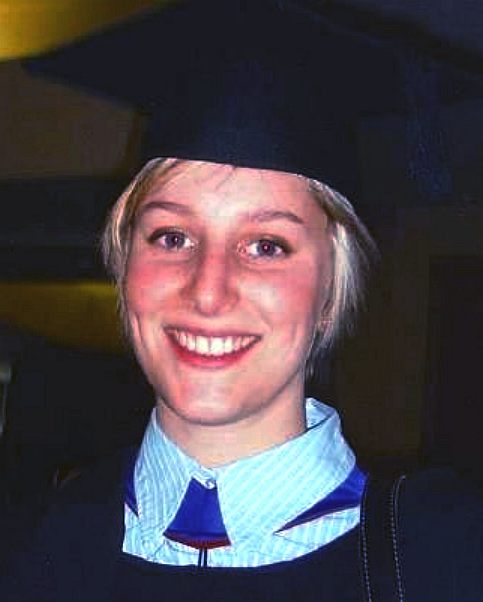
Christopher
Jefferies
One
case of particular note, had it gone to trial, is that of Chris Jefferies.
The media had condemned him as guilty before any charge had been laid.
They did this on the basis of probability and to sell newspapers. There
was no thought of justice, or obtaining justice. They were pandering to
presumed public opinion. With the new statute preventing a trial Judge
from warning a Jury about convicting without the need for any physical or
other corroborating evidence, we feel that Mr Jefferies would without any
doubt have been convicted - since the law requiring the state to prove
guilt was reversed is cases where sexual assault is part of the crime.
This may breach the Article 6 requirement for a fair trial - since the
onus is now on the defence to prove innocence.
The
manner in which certain aspects of the case were reported by the British
media led to one television broadcaster being temporarily banned from
attending press conferences, and the instigation of legal proceedings
against several newspapers by both Yeates' former landlord, and the
Attorney General. It is bad enough that a young lady had been murdered,
but to seek to capitalise on that fact is not only immoral but criminal
irresponsibility.
Following a television news report on 4 January 2011 that criticised the
handling of the investigation, ITN reporters were banned by the Avon and
Somerset Constabulary from attending a press conference convened to give
updates on the murder case. The item, presented by journalist Geraint
Vincent claimed police had made little progress with their investigation,
and questioned whether they were following correct procedural methods. A
former murder squad detective told the report that "certain routine
inquiries" such as looking for fresh evidence at the crime scene were
not being carried out. ITN accused the police of attempting "to
censor what information we can broadcast" while the constabulary
filed a complaint with the Office of Communications, calling the broadcast
"unfair, naïve and irresponsible reporting". The police
subsequently lifted the sanctions against ITN, but said that they would
"not hesitate to adopt similar tactics in the future." Legal
action was also considered over a tweet revealing that Tabak had viewed
internet pornography showing erotic asphyxiation and bondage. The contempt
of court charges were dropped after the tweet was removed.
Writing in London's Evening Standard on 5 January 2011, the media
commentator Roy Greenslade expressed concern over a number of negative
articles that had appeared in newspapers concerning Yeates' landlord,
Chris Jefferies, following his arrest, describing the coverage as
"character assassination on a large scale". He cited several
examples of headlines and stories that had been published, including a
headline in The Sun describing Jefferies – a former teacher at Clifton
College – as weird, posh, lewd and creepy; a story from the Daily
Express quoting unnamed former pupils referring to him as "a sort of
Nutty Professor" who made them feel "creeped out" by his
"strange" behaviour; and an article from the Daily Telegraph,
which reported Jefferies "has been described by pupils at Clifton
College…as a fan of dark and violent avant-garde films". Jefferies
launched legal action against six newspapers on 21 April – The Sun, the
Daily Mirror, the Daily Star, the Daily Express, the Daily Mail and the
Daily Record – seeking damages for libel. On 29 July he accepted
"substantial" damages for defamation from The Sun, the Daily
Mirror, the Sunday Mirror, the Daily Record, the Daily Mail, the Daily
Express, the Daily Star and The Scotsman in connection with their coverage
of his arrest. In an interview following Tabak's conviction, Jefferies
commented: "It has taken up a whole year virtually of my life, that
period of time has meant that everything else that I would normally be
doing has been in abeyance." He criticised the government's plans to
change the law on legal aid, which he said would prevent people with
limited means from taking action against newspapers.
Dominic Grieve, the Attorney General for England and Wales, stated on 31
December 2010 that he was considering action under the Contempt of Court
Act 1981 to enforce the obligation of the media not to prejudice a
possible future trial. Criminology professor David Wilson commented on the
resonance of the murder case with the national news media: "The
British public loves a whodunnit ... It's a particularly British thing. We
were the first nation to use murder stories to sell newspapers and that
culture is more ingrained here than elsewhere." Wilson called Yeates,
a white female professional, an "ideal victim" for the media. On
1 January, Yeates' boyfriend Greg Reardon commented on the media coverage
surrounding the arrest of Christopher Jefferies: "Jo's life was cut
short tragically but the finger-pointing and character assassination by
social and news media of as yet innocent men has been shameful."
On 12 May 2011, the Administrative Court granted the Attorney General
permission to move a motion for committal for contempt of court against
The Sun and the Daily Mirror for the way they had reported the arrest of
Jefferies. On 29 July, the court (Lord Judge CJ, Thomas LJ & Owen J)
ruled that both newspapers had been in contempt of court, and fined the
Daily Mirror £50,000 and The Sun £18,000. The Lord Chief Justice of
England and Wales, Lord Judge stated that "in our judgment, as a
matter of principle, the vilification of a suspect under arrest is a
potential impediment to the course of justice." The publishers of The
Sun and the Daily Mirror subsequently appealed against their fines, but
the Mirror case was rejected by the Supreme Court of England
and Wales on 9 March 2012, while The Sun withdrew its appeal.
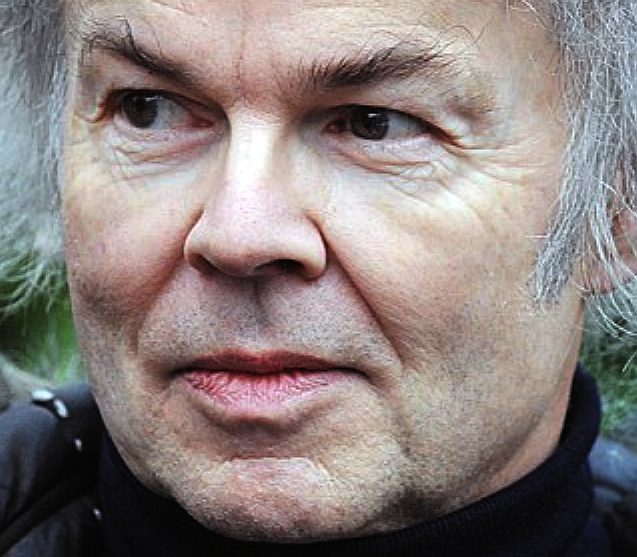
PHONE
TAPPING
The
phone tapping scandal is another issue that brings the press and the
criminal justice system into disrepute. The press were breaking the law to
obtain private information and the Information Commissioner knew all about
it but were turning a blind eye - for who knows what reason. Yet again the
press cannot be relied on to report impartially and in accordance with the
laws of the land.
A
to Z news directory:
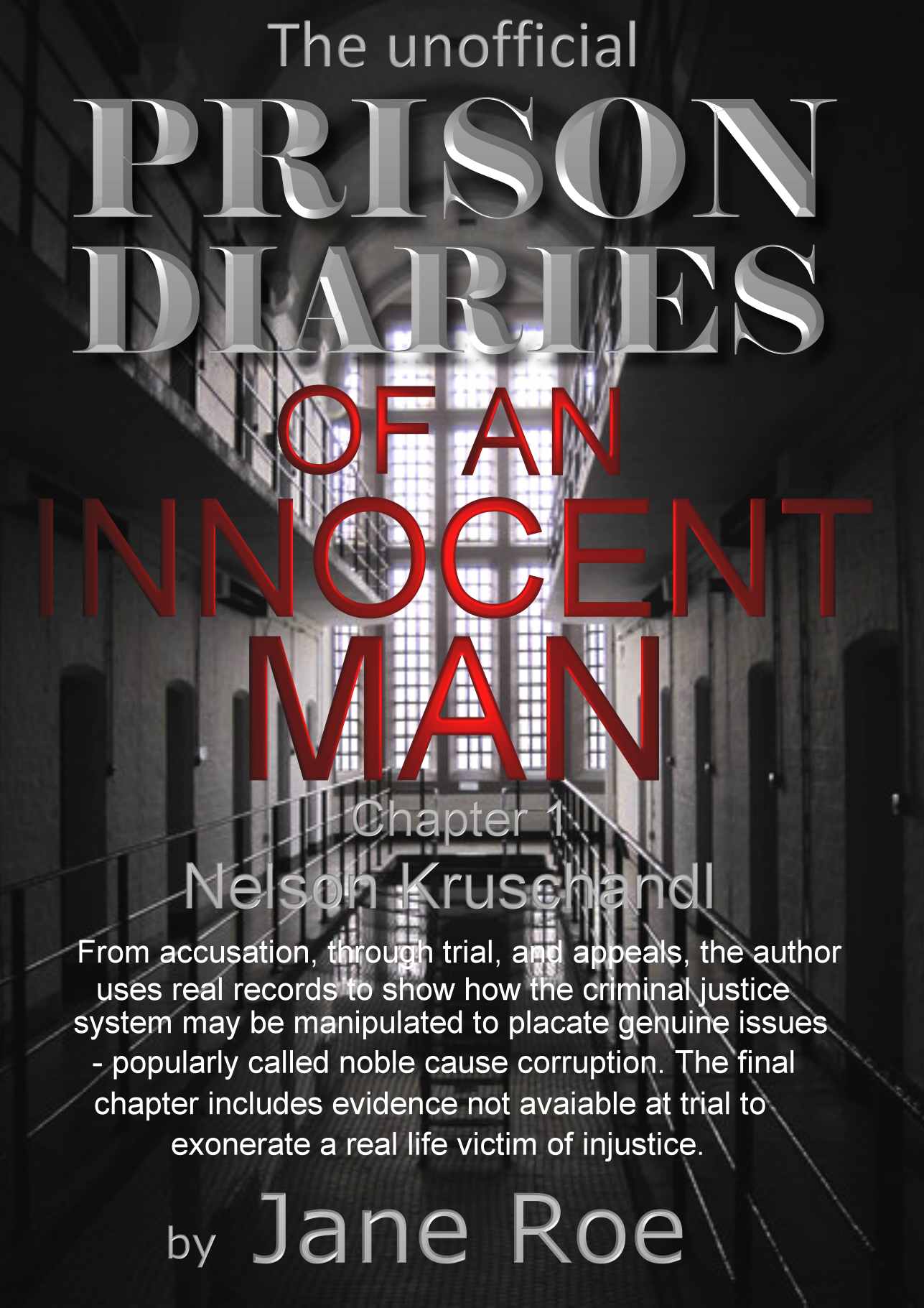
His
barrister didn't challenge the so-called scientific evidence produced at
trial. He should have. It was junk science. [Junk science is bogus
forensic information that the police use to gain a conviction, where they
have a weak case.] His barrister didn't show the jury the accused'
diaries, he should have, because the girl's mother reminded the accused to
send Valentines cards every year - which she, err, seems to have forgotten
to mention to the court. She also forgot to tell the prosecution
about the existence of her own diaries. These diaries reveal that the
accused was not alone with the girl as she had claimed. Why do you suppose
her mother might hide this information?
The
accused was instructed not to venture why the girl should make up her
story by his barrister, but of course he has a good idea. Sadly, that
cannot be revealed just yet for legal reasons. He did say he could forgive
a 15 year old for some kind of unthinking hormone driven revenge for not
doing what she had wanted, but not a mature woman - who would have known
better. The accused had refused to get together with the girls mother. The
girl wanted the accused to get together with her mother. It's an or-else
situation and the accused was threatened - which information the defence
lawyers failed to introduce - despite instructions to the contrary.
Local
newspapers breached a Court Order prohibiting publication, and published
mid-trial, which to us seem the most damaging time to publish, to
virtually guarantee conviction. Nearly all the local papers published at
the same time - in orchestrated fashion - obviously from a shared source;
presumably the reporter attending. Is that responsible reporting?
Once
they had convicted the victim of this injustice, the Crown tried to
prevent him publishing his story. Why would they do that? Fortunately,
Judge Cedric Joseph (this was his last case) was persuaded by barrister
Michael Harrison, that that would breach the chaps human rights. The Judge
agreed, subject to not naming the girl or her mother.
We
think that the Crown's reluctance is to do with the way they obtained
their conviction. It was based on medical testimony, which itself was
based on out of date guidance from the Royal College of Paediatric and
Child Health from 1997. New guidance was issued in 2008, just one month
after the trial. Why did the Crown not wait the extra month before going
to trial? Well, we know the answer to that, the new guidance confirmed
that certain internal marks are naturally occurring. The prosecution told
the jury (or, rather, allowed their pet witness to say it for them - which
amounts to the same thing) that they were supportive of the allegations -
which was a deception on the part of the Crown.
They
Crown had kept the defence waiting for more than 18 months and delayed
matters by refusing to hand back vital computer information that they'd
confiscated - claiming they might find pornographic images. Of course the
Crown were just making this up and instead of letting the jury know that
none of the accused' computers were image free, they refused to confirm
the results of their investigations! Don't you think the jury should have
known that this mans' computers were clean?
You'll
have to wait for the subject's appeals in the ECHR to conclude before this
book is published. Maybe then we'll see an official version in 2016/2017?
European appeals take 4 years on average, from the date of lodge. But
first you have to exhaust any domestic remedy. He has finally, as of
February 2013.
This
man served nearly four years for a crime he did not commit. If you would
like to know more about this developing story, please Contact
Us.
WE ACCEPT NO RESPONSIBILITY
FOR THE ACCURACY OF ANY FEATURED LINKS
|



